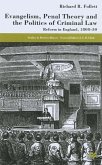In "Non-Criminal Prisons," Arthur Griffiths embarks on an exploration of the penal system, focusing on the unique concept of institutions designed for reformation rather than punishment. Through his incisive prose, Griffiths articulates a vision of prisons as spaces for rehabilitation, emphasizing psychological and vocational training over mere confinement. The book is grounded in the late 19th-century context of evolving attitudes towards crime and punishment, appealing to the burgeoning interest in social reform during the Victorian era. Griffiths masterfully weaves together empirical observation, case studies, and philosophical reflections, making the work both a critical commentary and a hopeful manifesto for the potential of non-criminal prisons. Arthur Griffiths, a prominent figure in the discourse on criminal justice, was deeply influenced by his extensive experiences as a prison governor and civil servant. His practical insights into the failings of contemporary penal practices, combined with his literary skill, propel his argument for a paradigm shift in how society views incarceration. Griffiths' background and convictions lend credibility to his passionate advocacy for humane treatment of offenders, positioning him as a key voice in the evolution of criminology. "Non-Criminal Prisons" is a seminal read for those interested in criminal justice reform, sociology, and the ethical dimensions of incarceration. Readers will find Griffiths' arguments both enlightening and provocative, urging a reconsideration of long-held beliefs about punishment and the potential for human redemption.
Bitte wählen Sie Ihr Anliegen aus.
Rechnungen
Retourenschein anfordern
Bestellstatus
Storno




![Fifth Letter to Convicts in State Prisons and Houses of Correction, Or County Penitentiaries [By D.L. Dix] Fifth Letter to Convicts in State Prisons and Houses of Correction, Or County Penitentiaries [By D.L. Dix]](https://bilder.buecher.de/produkte/68/68581/68581495m.jpg)



